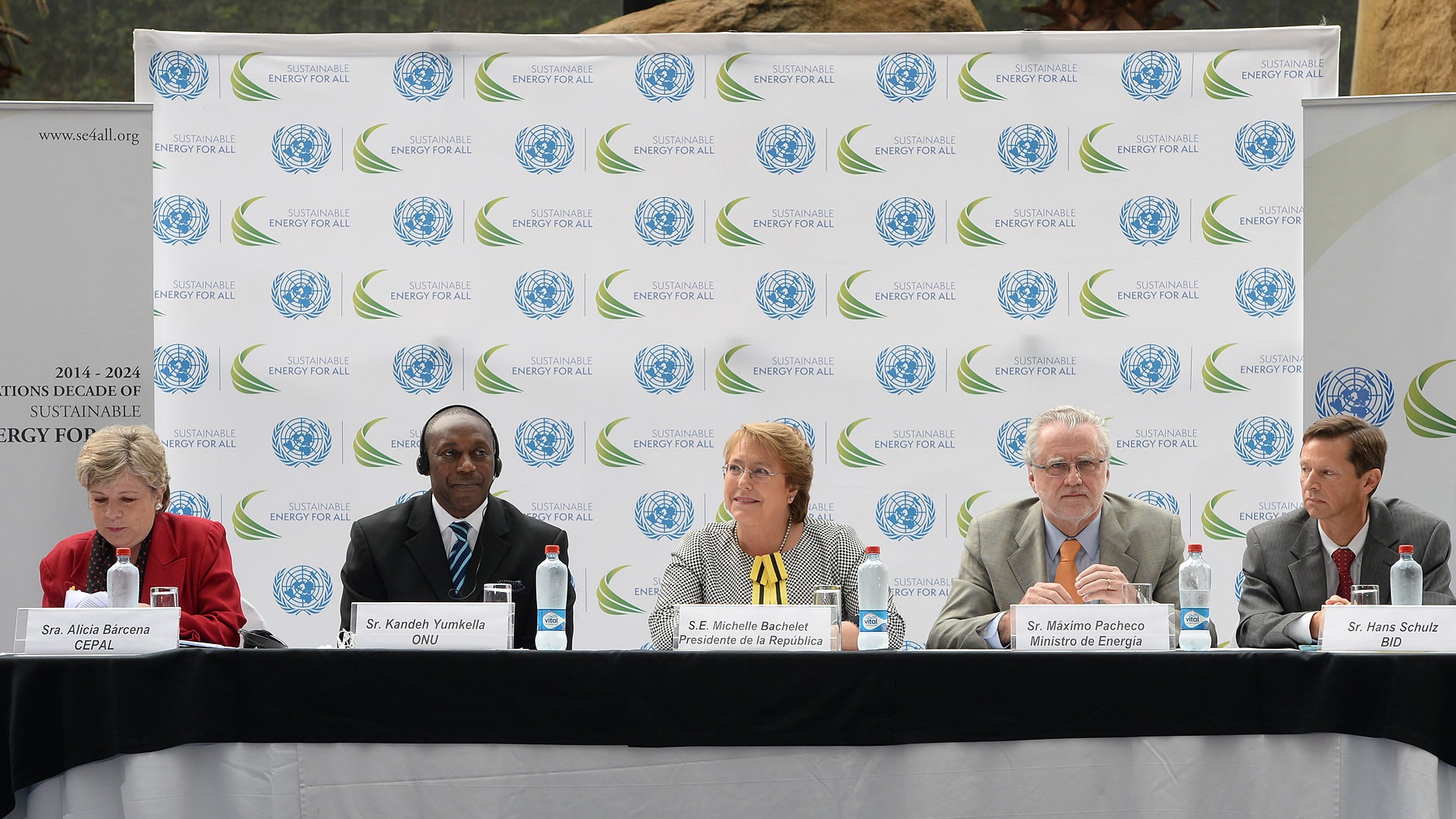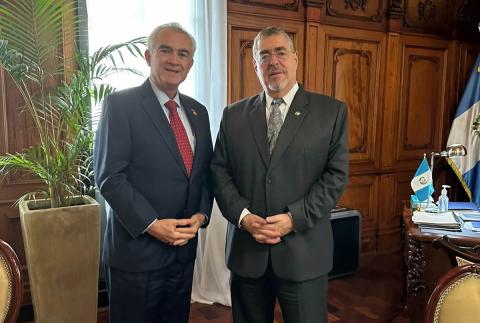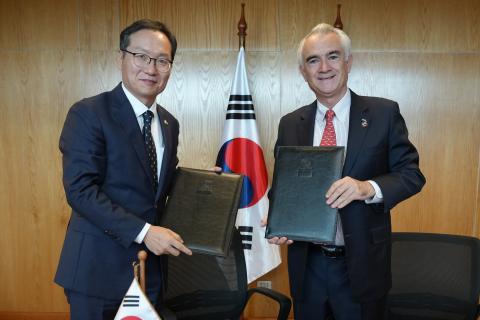Press Release
(October 15, 2014) Some 34 million citizens in Latin America and the Caribbean have no electricity in their homes and 75 % of the regional energy matrix relies on non-renewable sources, which means that expanding access to energy and increasing the use of renewable energies and efficiency are needed to achieve sustainable development with equality, regional authorities and representatives of international organizations agreed during the launch of the Decade of Sustainable Energy for All (SE4ALL) Americas.
At the inauguration of the meeting, held in Santiago, the speakers included Chilean President, Michelle Bachelet; the Chief Executive Officer of Sustainable Energy for All (SE4ALL) and Special Representative of the United Nations Secretary-General, Kandeh Yumkella; the Executive Secretary of the Economic Commission for Latin America and the Caribbean (ECLAC), Alicia Bárcena; the Vice-President of the Inter-American Development Bank (IDB), Hans Schulz; and the Resident Coordinator of the United Nations System in Chile, Antonio Molpeceres.
President Michelle Bachelet indicated that Chile, where 96 % of the population does have access to electricity, has set the goal of reducing by 50 % the number of families that have no electrical power today by the year 2018. The country also aims to have 20 % of its matrix coming from non-conventional renewable energies by 2025 and is promoting energy efficiency with the objective of achieving a 20 % savings by that same year.
Kandeh Yumkella, Special Representative of the United Nations Secretary-General, contended that energy, which was not included explicitly in the Millennium Development Goals (MDGs), should be a central theme in the post-2015 agenda to foment growth, competitiveness and innovation. There are still 1.3 billion people in the world today who lack access to electricity, he underscored.
Of those people, some 34 million live in Latin America and the Caribbean, which amounts to 5 % of the region's total population, ECLAC's Executive Secretary said. Alicia Bárcena explained that this United Nations organization had identified four key points for a sustainable agenda on this issue: promote the efficient use and saving of energy, foster equal access, improve energy security and diversify the matrix, 75 % of which currently depends on non-renewable sources.
The Vice-President of the IDB said that organization is on track to reach the goal of allocating 5 billion dollars in five years to finance sustainable energy projects, as it committed to do in 2012 during the United Nations Conference on Sustainable Development in Rio de Janeiro (Rio+20). Among the most recent regional efforts, Hans Schulz highlighted the deployment of solar energy in Chile and wind energy in Uruguay.
Sustainable Energy for All is a multi-stakeholder partnership between governments, private sector and civil society that was launched in 2011 by the UN Secretary-General, Ban Ki-moon. It has set three interlinked objectives to be achieved by 2030: ensure universal access to modern energy services, double the global rate of improvement in energy efficiency, and double the share of renewable energy in the global energy matrix.
The United Nations agreed in late 2012 that the period between 2014 and 2024 would be considered the Decade of Sustainable Energy for All. The gathering inaugurated today represents that campaign's launch in this region, where 21 Latin American and Caribbean countries have already joined the initiative.
The meeting, which will conclude on Friday, October 17, is being attended by authorities from the Energy Ministries of numerous countries in the region, as well as representatives of the private sector and civil society.
More information is available at www.cepal.org.



